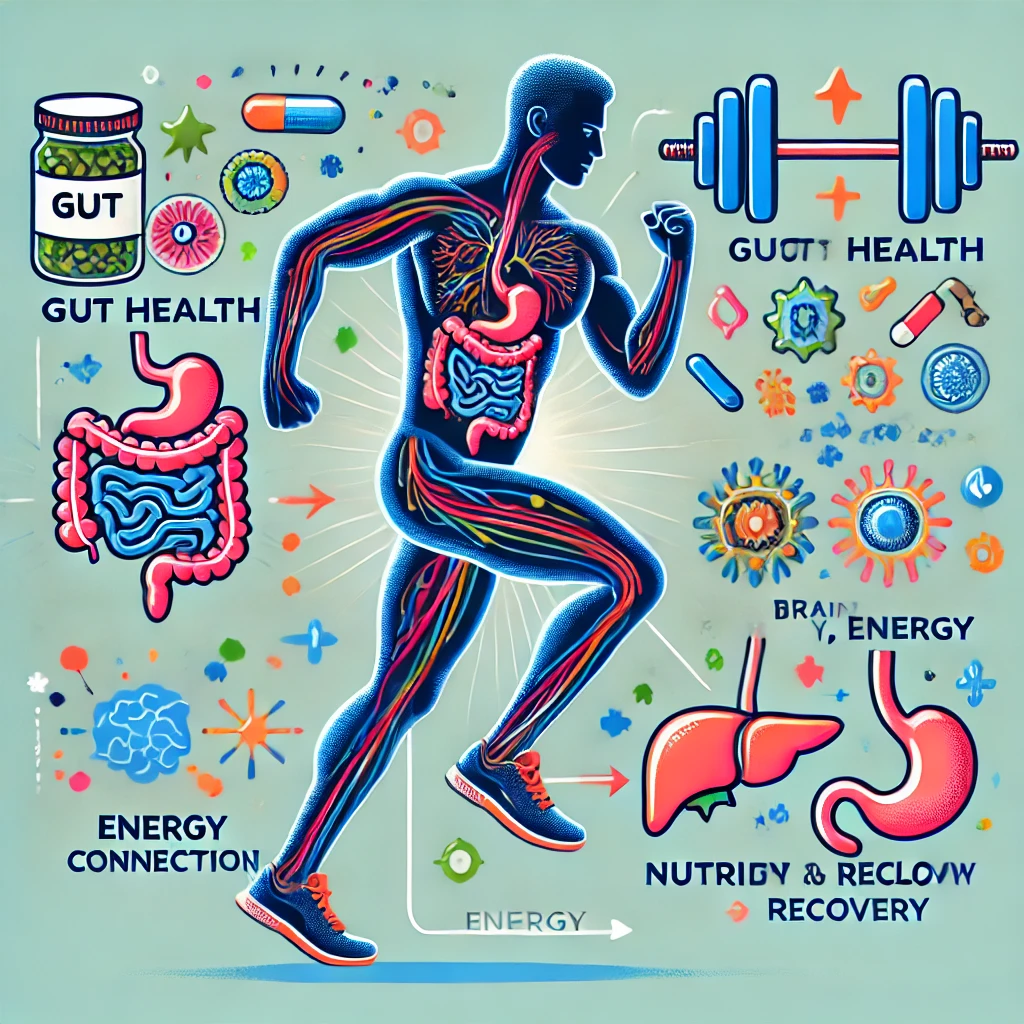
Gut health isn’t just another buzzword foundational to athletic performance and overall wellness. In recent years, research has shown that the microbiome, the vast collection of bacteria and microorganisms in our digestive tract, is essential for more than just digestion. The gut microbiome plays a significant role in immune health, mood regulation, energy levels, and inflammation control, which are crucial for athletes who want to perform at their best.
A well-functioning gut microbiome supports better nutrient absorption, speeds up recovery, and decreases inflammation—benefits that can make a significant difference in athletic training and competition. Here’s a deep dive into the importance of gut health for athletes and how optimizing it can enhance physical and mental resilience.
Gut Health and Performance
A healthy gut microbiome contributes to optimal digestion, immune function, and energy production, all of which are critical for athletes. Recent studies underscore the relationship between gut health and athletic performance.
This research has discovered that Veillonella, a bacteria that breaks down lactate—a byproduct of intense exercise—is more abundant in athletes, allowing for quicker recovery and reduced fatigue.
Furthermore, research shows that the microbiome influences muscle synthesis and repair. A study published in Frontiers in Microbiology (2018) highlighted that certain beneficial bacteria produce short-chain fatty acids (SCFAs) that reduce inflammation and support muscle repair. This is especially beneficial for athletes who put their muscles through repeated strain.
Unique Gut Challenges for Athletes
Intense physical activity places considerable stress on the body, including the digestive system. During exercise, blood is redirected from the gut to the muscles to fuel physical activity, disrupting normal digestion and leading to gastrointestinal (GI) symptoms like cramps, bloating, and nausea.
Understanding this “athlete’s gut” phenomenon is key to addressing it. When blood flow shifts away from the digestive system, it can lead to increased gut permeability, also known as “leaky gut,” where bacteria and toxins may enter the bloodstream. A compromised gut barrier can lead to inflammation, fatigue, and increased recovery time, which can hinder performance.
Addressing these gut challenges often requires athletes to track and manage food choices, timing, and hydration levels to reduce the likelihood of GI distress. Regular meal patterns and dietary routines can help “train” the gut to manage what it’s fed, ultimately reducing digestive disruptions during high-stakes performance.
Fueling the Gut: Key Nutritional Strategies for Athletes

Nutrition plays a central role in gut health, and the foods athletes consume can significantly impact their microbiome and, thus, their performance and recovery. Here are some key strategies to foster a resilient gut microbiome:
- Incorporate Probiotics: Probiotics, found in fermented foods like yogurt, kefir, sauerkraut, and kimchi, introduce beneficial bacteria into the gut. Consuming probiotics can strengthen the gut barrier, making it more resilient to stressors.
- Boost Prebiotic Intake: Prebiotics, found in foods like garlic, onions, and bananas, are non-digestible fibers that feed good bacteria. Prebiotics help maintain gut microbiome diversity and promote the production of compounds that support gut health and reduce inflammation.
- Stay Hydrated: Proper hydration supports the gut’s mucosal lining, aids nutrient absorption, and keeps digestion smooth. Hydration is especially important for athletes, as even mild dehydration can lead to digestive disruptions and decreased performance.
- Optimize Meal Timing: Timing meals can make a substantial difference in managing digestive health for athletes. Eating large meals close to workout times can lead to digestive discomfort and affect performance. A small, easily digestible meal a few hours before exercise and a post-workout snack with protein and carbohydrates can support gut health and expedite recovery.
- Gradual Fiber Intake: Fiber benefits the microbiome, but introducing it too quickly can lead to GI discomfort. Gradually increasing fiber intake allows the gut to adjust without causing issues, helping support microbiome diversity and overall gut health.
The Gut-Brain Connection: Mental Resilience and Performance
Athletes know that peak performance isn’t just physical—it’s also mental. The gut and brain are closely linked through the gut-brain axis, a bidirectional communication network connecting the digestive and central nervous systems. When stress levels rise, such as before a major competition, the gut can be affected, leading to GI symptoms that impact focus and performance.
Conversely, a balanced gut microbiome can positively impact mood and mental clarity. For instance, a study in Psychosomatic Medicine (2017) revealed that gut bacteria produce neurotransmitters like serotonin, which influence mood, stress levels, and mental resilience. This connection explains why “pre-game jitters” can physically manifest as an upset stomach.
Incorporating foods rich in Omega-3 fatty acids (found in fish, chia seeds, and walnuts) can support brain and gut health. Omega-3s have been shown to improve mood and reduce anxiety, which can help athletes stay calm and focused.
Athletes can also benefit from stress-reducing practices like mindfulness, breathing exercises, and yoga to maintain a balanced gut-brain connection. Such activities help reduce cortisol levels, supporting gut function and enhancing mental resilience.
Practical Tips for Athletes to Maintain Gut Health
Supporting gut health is an ongoing process that requires daily attention and commitment. Here are some practical tips for athletes looking to optimize their digestive health:
- Diversify Your Diet: A varied diet with a mix of fruits, vegetables, whole grains, and lean proteins can foster a diverse gut microbiome, which supports resilience and flexibility in response to different stressors. The more variety, the better, as different bacteria thrive on various nutrients.
- Consider Supplements: While food sources are ideal, probiotic and prebiotic supplements can help fill gaps, particularly during training seasons when keeping a balanced diet is challenging. This study suggests that taking a daily probiotic supplement can reduce the risk of GI symptoms, especially during periods of high-intensity training. However, consult with a healthcare provider before introducing any supplements.
- Develop Consistent Routines: Your gut functions best with regularity. A consistent eating and exercise routine helps your digestive system anticipate what’s coming, ultimately reducing the risk of GI distress.
- Track and Adjust: A food and symptom diary can help identify food patterns and gut-related reactions. By recognizing specific triggers, athletes can make informed adjustments to diet and routine, enhancing gut resilience.
- Seek Professional Guidance: Consulting with a nutritionist or gastroenterologist can provide personalized guidance tailored to athletic goals and gut health needs. A healthcare professional can help create a plan that aligns with the athlete’s unique needs.
Conclusion
Gut health is a critical, yet often overlooked, factor in athletic performance and overall well-being. By supporting a balanced gut microbiome, athletes can improve nutrient absorption, reduce inflammation, and recover faster, enabling them to perform at their peak. Prioritizing gut health is not only about avoiding discomfort—it’s about empowering the body to reach its full potential, mentally and physically. Whether through thoughtful nutrition, consistent routines, or mindful stress management, athletes have the tools to build a resilient gut that works just as hard as they do.
